Opportunities present in Vietnam's M&A market
"15 years ago, investors asked me whether they should choose Vietnam or not, and I am still asked this question today," said Binh Le Vandekerckove, CEO and head of M&A at ASART Deal Advisory.
Le recalled how in 2012, everyone was pessimistic about the M&A market. But between 2016–2018, the numbers became quite positive. In 2017 alone, an estimated $16 billion poured into Vietnam from abroad.
"So, opportunities have always been there, and in the next three to five years, we should see Vietnam's M&A market reach $20 billion." Le said.
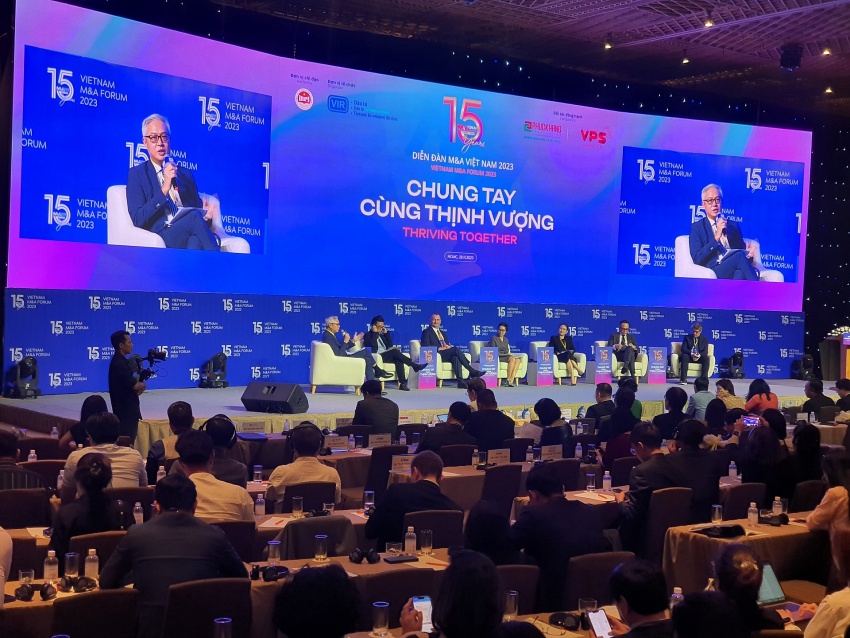 |
| 2023 Vietnam M&A Forum organised by VIR on November 28 in Ho Chi Minh City |
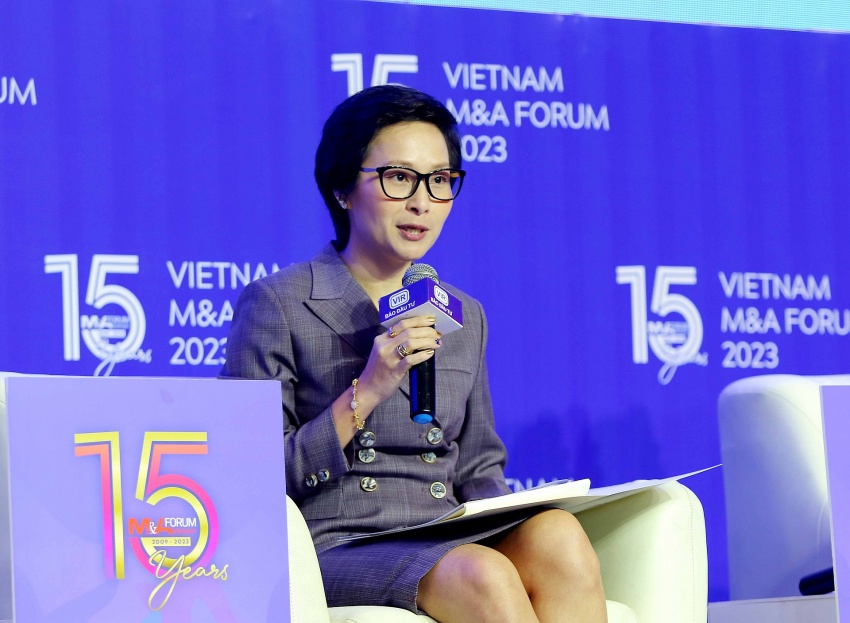 |
| Binh Le Vandekerckove, CEO and head of M&A, ASART Deal Advisory |
Seck Yee Chung, a partner at Baker McKenzie, said that while Vietnam is host to many great opportunities, no country is perfect.
"There are still many challenges. When investors look at Southeast Asia, they can easily consider opportunities in countries neighbouring Vietnam. Investors will think twice before investing,” said Chung.
“Vietnam is fighting against corruption, which can create a slower pace for investment activities. The country has no control over external factors, but we can do more to solve domestic problems. We can simplify the visa process, improve tourism infrastructure such as hotels and restaurants. There are still many points to improve,” he said.
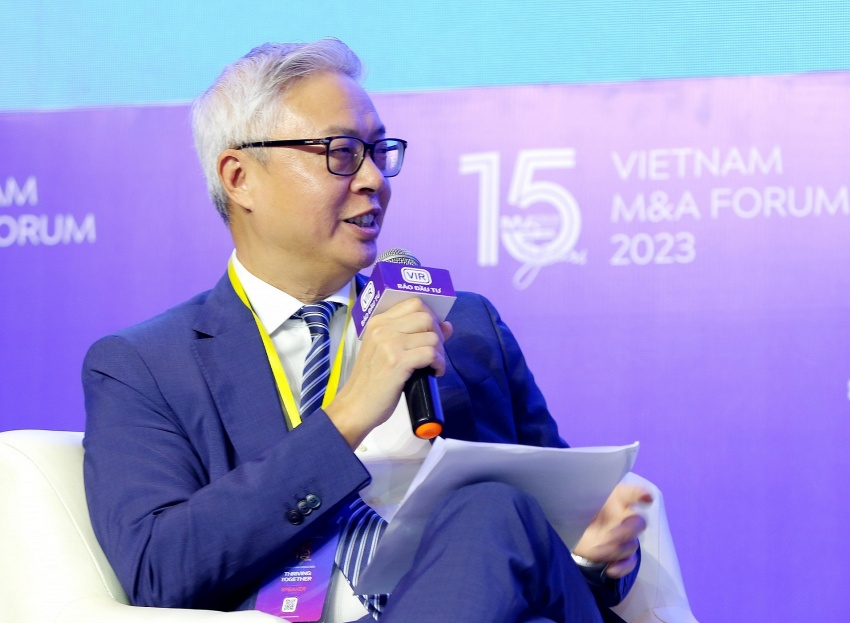 |
| Seck Yee Chung, partner, Baker McKenzie |
Masataka 'Sam' Yoshida, head of the Cross-border Division of RECOF Corporation and CEO of RECOF Vietnam, spoke of the many challenges that remain in implementing deals in Vietnam.
"The greatest challenges are the time it takes to implement processes, procedures, accounting systems, and the seller's inflated valuation expectations," said Yoshida.
"Fortunately, in most cases we can overcome these thanks to the efforts of both the seller and the buyer," he added.
The length of time to complete deals has also been a concern for Japanese investors when compared to Japan or the EU. However, Yoshida was positive that Vietnam remains attractive to Japanese investors when compared to Thailand and Myanmar.
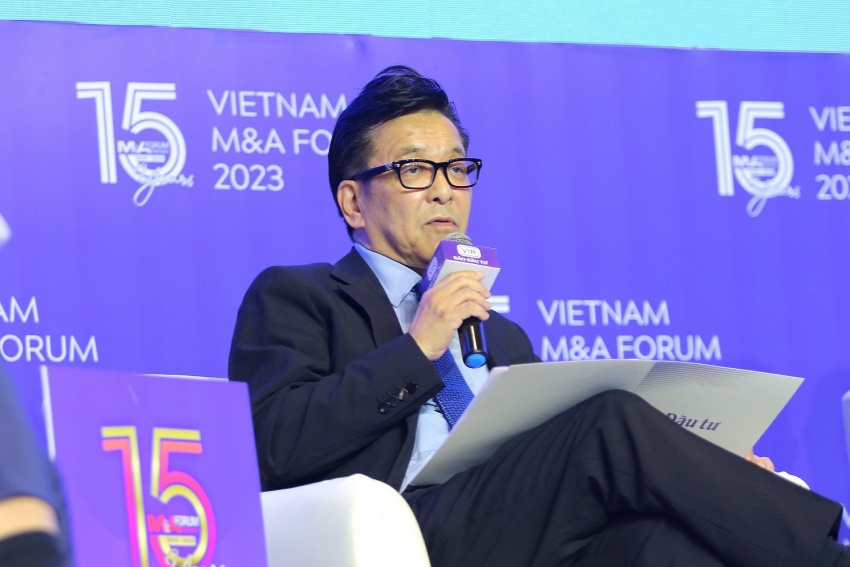 |
| Masataka 'Sam' Yoshida, head, Cross-border Division, RECOF Corporation and CEO, RECOF Vietnam |
Warrick Cleine, chairman and CEO of KPMG in Vietnam and Cambodia said, "In 2023, the amount and value of M&A deals stagnated globally as investors faced political and macroeconomic uncertainties from around the world, along with rising inflation affecting investor psychology, making everyone more cautious."
“The resulting tightening of monetary policies in major economies has impacted emerging markets, making transactions more expensive and negatively affecting the quality and quantity of deals,” Cleine added.
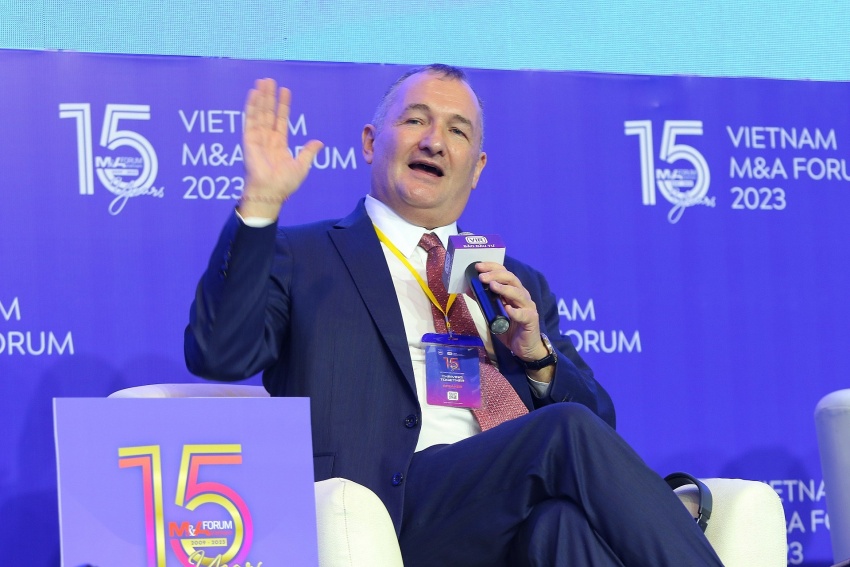 |
| Warrick Cleine, chairman and CEO, KPMG, Vietnam and Cambodia |
Also present was Khanh Vu, deputy managing director of the VinaCapital Vietnam Opportunity Fund, who said, "Although investors are concerned about geopolitical issues, the factor that motivates them to choose Vietnam is it is one of the best-connected countries in the world by nature of the increasing number of free-trade agreements it holds."
“I want to note, however, that infrastructure needs investment and to be built more systematically, otherwise, over time, these difficulties will accumulate, causing logistics costs to increase sharply. Human resources are also a major challenge for Vietnam," Vu said.
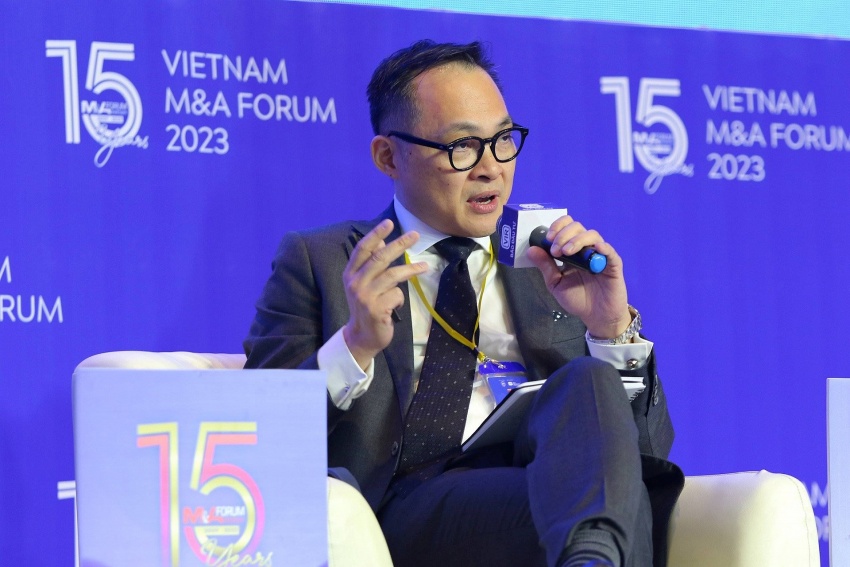 |
| Khanh Vu, deputy managing director, VinaCapital Vietnam Opportunity Fund |
Vo Ha Duyen, chairperson of VILAF, spoke of her belief that joint ventures will become more popular thanks to the flexibility in capital allocation, supply chain capacity, and competitiveness.
“From a legal and operational perspective, a normal M&A deal only needs a purchasing contract. However, when entering a joint venture, the parties have entered into a more profound relationship, but it will also be more complicated," Duyen said.
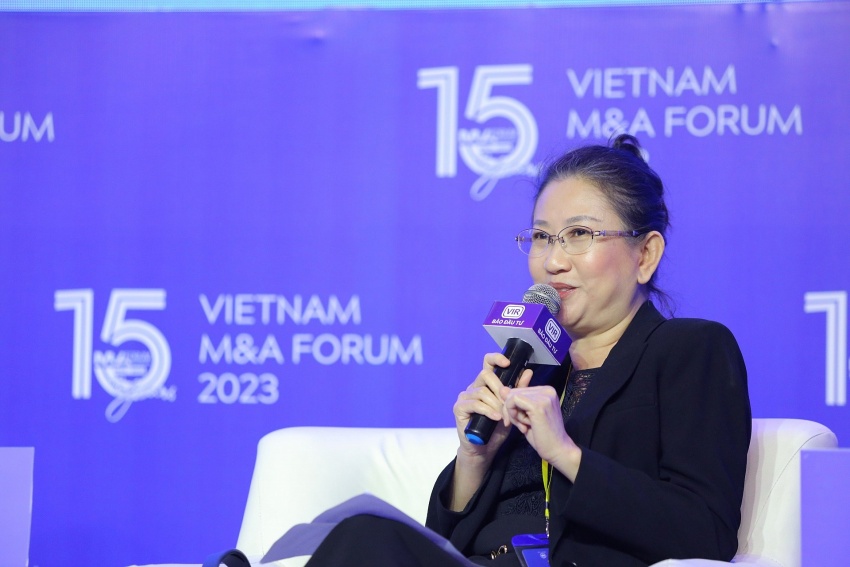 |
| Vo Ha Duyen, chairperson, VILAF |
Meanwhile, Sebastien Laurent, managing partner Asia, Financière de Courcelles, said, “Investors are interested in sustainable growth drivers for their companies and M&A activities will be one of the driving forces that supports long-term growth.”
However, Laurent acknowledged that this momentum currently faces many challenges as many regions are being adversely affected by geopolitical events, including economic tensions between the US and China, along with the conflicts in Ukraine and the Middle East.
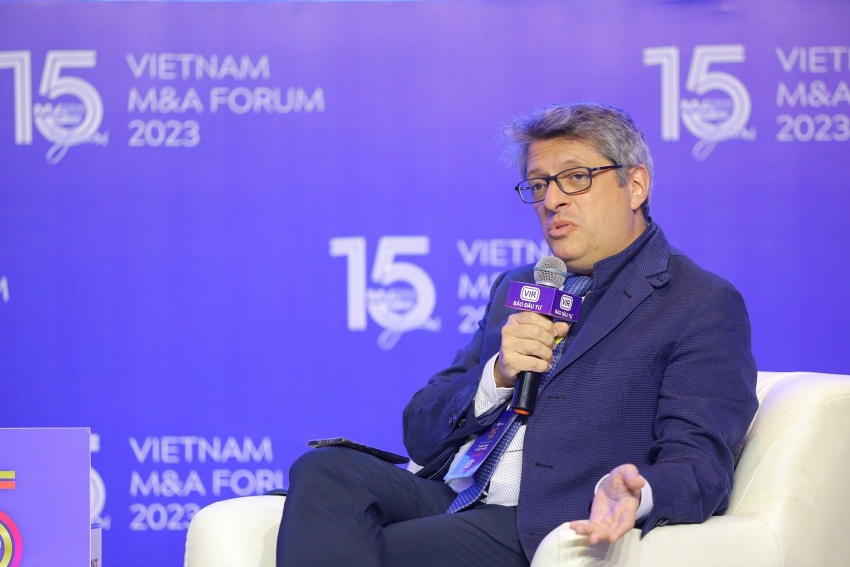 |
| Sebastien Laurent, managing partner Asia, Financière de Courcelles |
“In this context, the stability of Southeast Asia is attractive to investors with plans to shift the location of their factories and capital flows. The issue for investors now is to decide which country in Southeast Asia to invest in. Will investors implement their strategies in Vietnam or in Thailand?," Laurent asked.
"Tax incentives are a major influence on where investors conduct their activities, while the quality of human resources and labour productivity are also a concern," he added.
What the stars mean:
★ Poor ★ ★ Promising ★★★ Good ★★★★ Very good ★★★★★ Exceptional
Related Contents
Latest News
More News
- Hermes joins Long Thanh cargo terminal development (February 04, 2026 | 15:59)
- SCG enhances production and distribution in Vietnam (February 04, 2026 | 08:00)
- UNIVACCO strengthens Asia expansion with Vietnam facility (February 03, 2026 | 08:00)
- Cai Mep Ha Port project wins approval with $1.95bn investment (February 02, 2026 | 16:17)
- Repositioning Vietnam in Asia’s manufacturing race (February 02, 2026 | 16:00)
- Manufacturing growth remains solid in early 2026 (February 02, 2026 | 15:28)
- Navigating venture capital trends across the continent (February 02, 2026 | 14:00)
- Motivations to achieve high growth (February 02, 2026 | 11:00)
- Capacity and regulations among British areas of expertise in IFCs (February 02, 2026 | 09:09)
- Transition underway in German investment across Vietnam (February 02, 2026 | 08:00)

 Tag:
Tag:


















 Mobile Version
Mobile Version